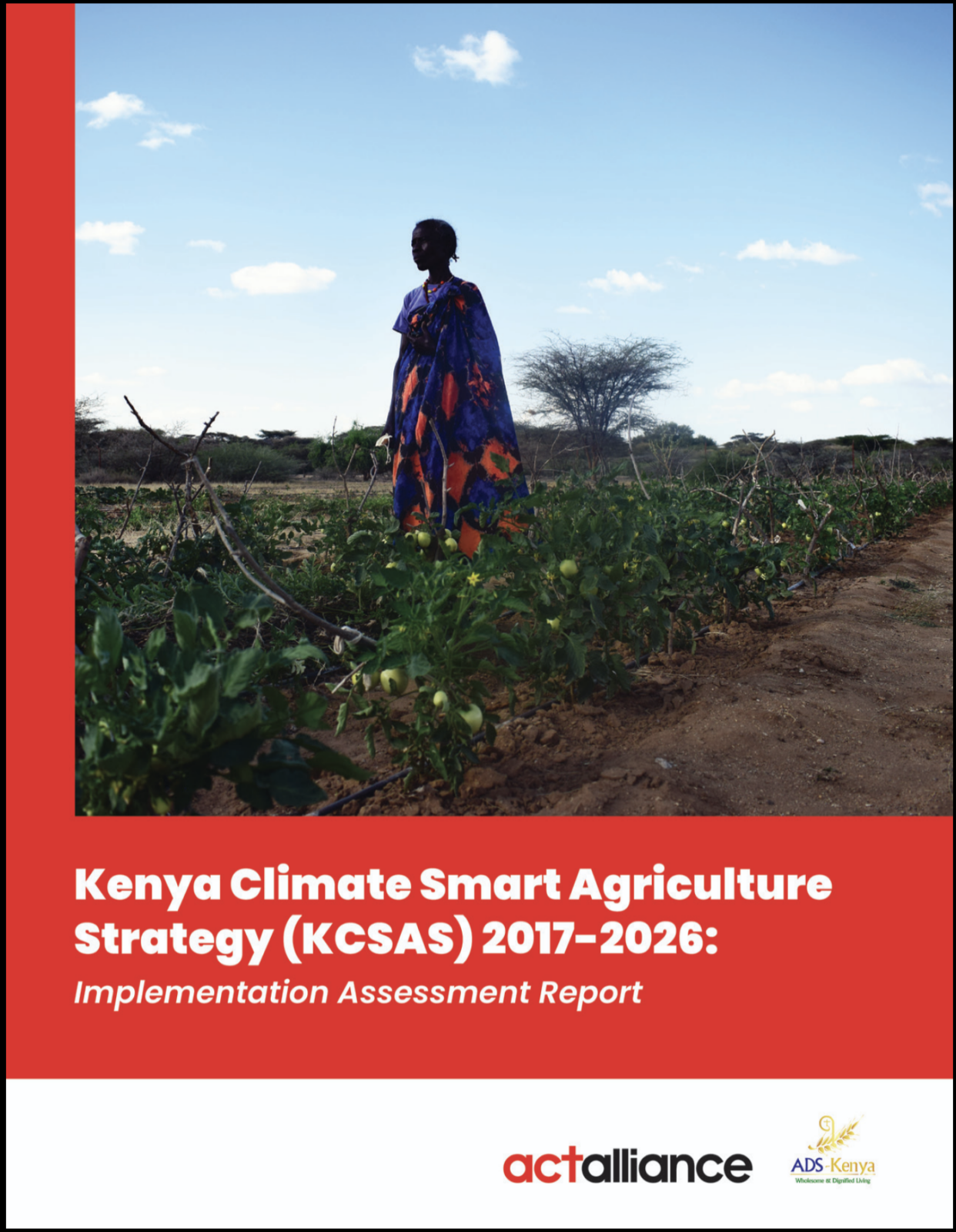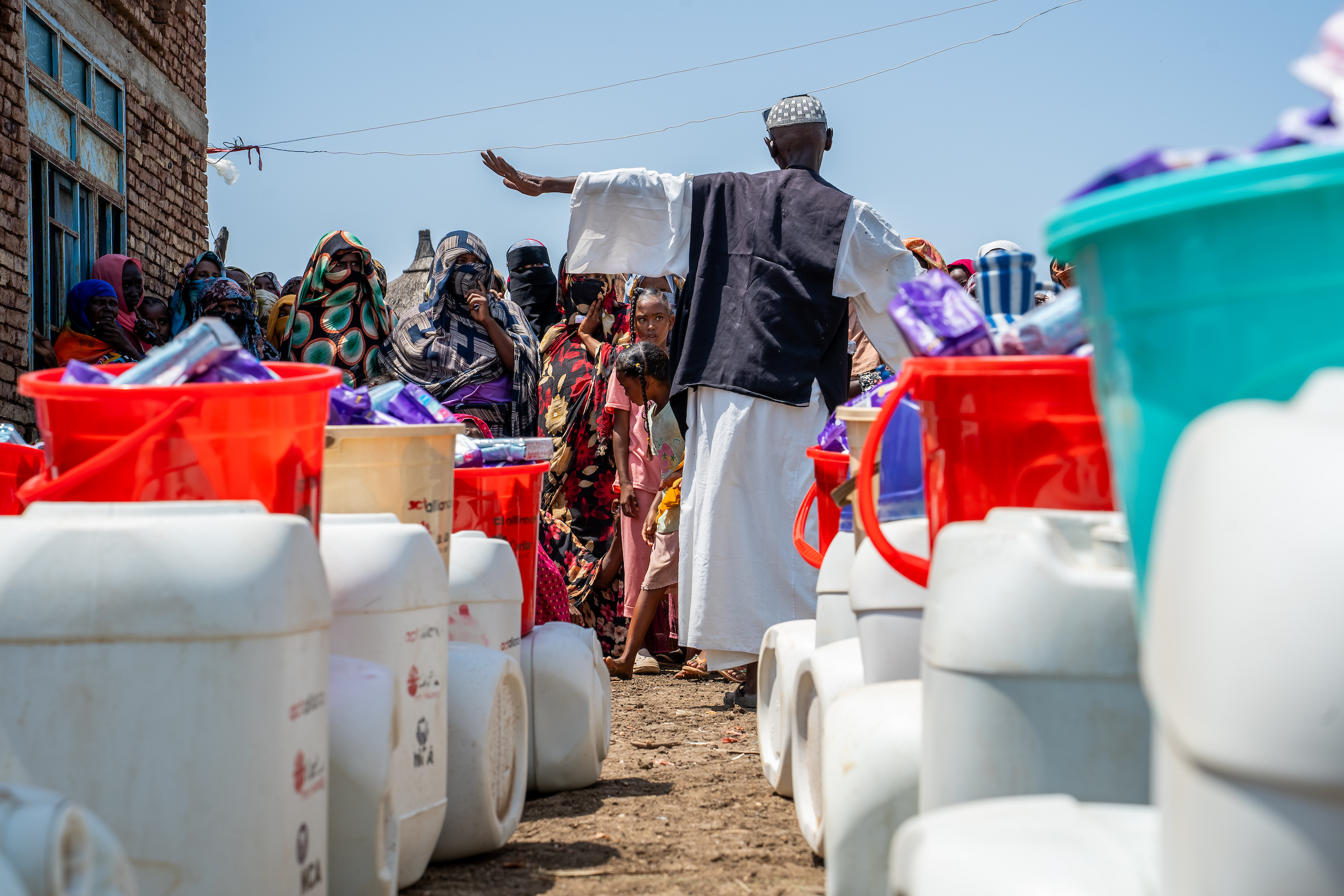During the thematic day at the ACT Alliance General Assembly in Yogyakarta, humanitarian practitioners gathered to discuss the challenges and opportunities of the current humanitarian landscape. The event called “Together for Justice – A Justice-oriented Approach to Addressing Humanitarian Needs Equitably’”, was an attempt to find practical solutions to growing humanitarian needs.
“We are witnessing a crisis in fundraising, in political authority, and access,” observed Alistair Dutton, Secretary General of Caritas Internationalis during the “Together for Justice: Humanitarian Response” discussion. If this is the current situation, he noted, the future looks bleak. With climate change becoming a full-blown emergency, for every migrant we have today, we will have 1,000 more in the near future.
When the glaciers in the Himalayas disappear, countries like Nepal, Bangladesh, and Bhutan will lose their drinking water sources. If climate breakdown continues to worsen in Africa, conditions will become 100,000 times more severe than they are today. As civil society, we will need to make do with fewer resources for our humanitarian operations.
Currently, large humanitarian agencies receives the vast majority of available funding, not local organizations. However, the system is complex and fragile, heavily reliant on institutional funding. If that funding becomes scarce, it will be extremely difficult for the system to function.
“Churches, however, are in a strong position because people are generally very generous,” Dutton continued. “Our volunteerism and beliefs are not heavily reliant on funding. But we will need to do more with less and collaborate more intelligently.”
“The best humanitarian and development programs are found in places where resources are scarce,” Dutton concluded.
Humanitarian needs worldwide are becoming more complex and increasingly multi-sectoral. “Consider natural disasters and prolonged crises. There is ample opportunity to come together and address humanitarian needs, which vary depending on where the emergency occurs,” said Juliate Keya Malakar, Executive Director of the Christian Commission for Development in Bangladesh (CCDB).
To address a crisis, we must respect the local context, and the only way to do so effectively is with a rights-based approach, Keya Malakar concluded.
Currently, the humanitarian sector receives 99% of available funding. However, the system is complex and fragile, heavily reliant on institutional funding. If that funding becomes scarce, it will be extremely difficult for the system to function.Alistair Dutton Secretary General of Caritas Internationalis
How can we improve? The answer lies in true localization.
“There is growing fatigue with Northern humanitarians lecturing local agencies on what localization should be,” said Dutton. “For ACT Alliance and Caritas, localization is different—it’s who we are. We are the local churches and communities.”
As international actors, including faith-based organisations, we must remember that the “local” existed before we arrived, he noted.
Local agencies are far more cost-effective than international ones, particularly in terms of salaries and overhead costs. Shifting towards localization will help strengthen local economies, reduce the inflation of the humanitarian system, and, by being more effective, attract more funding.
“We need to strengthen our presence in communities, but we have yet to develop an appropriate way to collaborate with them,” noted Keya Malakar. “Truly embracing localization means asking tough questions that will guide us toward genuine implementation.”
Hepi Rahmawati, Regional Coordinator for South-East Asia, the Pacific, and Europe at GNDR (the Global Network of Civil Society Organisations for Disaster Reduction), added, “Simply demanding to improve internal capacity is not always the best way to engage with local actors. Our approach to emergency response must be respected and valued.”
“Simply demanding to improve internal capacity is not always the best way to engage with local actors. Our approach to emergency response must be respected and valued.”Hepi Rahmawati Regional Coordinator for South-East Asia, the Pacific, and Europe at GNDR
It’s time to shift the power
“I’ve never seen so many disasters in my 20 years of humanitarian work, it’s getting worse, and we need to do better,” said Coleen Heemskerk, Humanitarian Director from ACT Church of Sweden.
The Emergency Preparedness and Humanitarian response Reference Group has launched a pledge on locally-led humanitarian response to the Assembly.
“We have the opportunity to shift the power, ensure accountability, and deliver the highest quality support to those we serve. We can be leaders in this sector. This pledge will put local actors at the centre of decision-making and secure their resources, in line with the commitments made under the Grand Bargain,” she concluded.
Please, download the pledge here. Members are invited to support. For futher information and to sign up to the pledge please contact Niall O’ Rourke, niall.orourke@actalliance.org or Cyra Bullecer, cyra.bullecer@actalliance.org.





